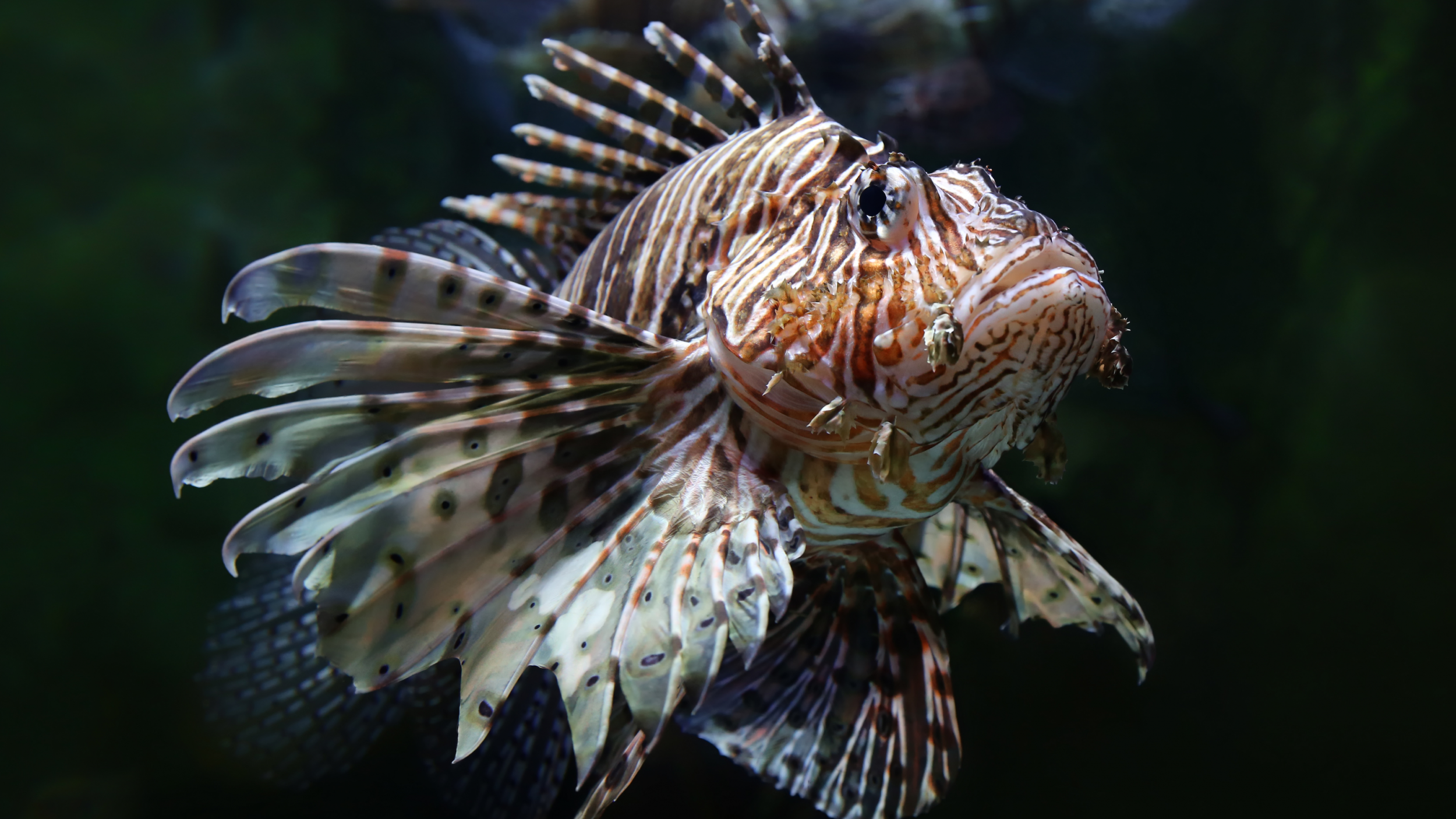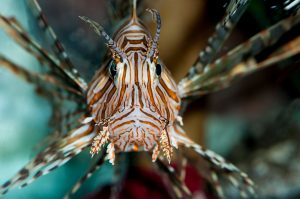
Lionfish: A Nasty Surprise Visitor
Lionfish are venomous, fast-reproducing fish that have spread along the eastern Atlantic coast and Gulf of Mexico, and pose a major threat to Florida’s native species and ecosystems. They are native to the warm waters of the South Pacific and Indian Oceans and were first detected along Florida coasts in the mid-1980s, but their numbers have increased dramatically in the past 15 years. Beautiful and dangerous, lionfish are popular with people who keep home aquariums, so it is likely that the cause for the incursion is from people who had a hard time with them and released them into local waterways.
Lionfish are voracious predators, consuming more than 70 different species of fish and crustaceans. In areas with large numbers of lionfish, the native fish populations have been destroyed by up to 90%.
Lionfish populations do considerable damage to the ecosystems they invade, particularly coral reefs. They have no natural predators in these areas, so what can be done?
Some areas have started holding lionfish “derbies.”
A lionfish derby is a competition to collect and remove as many lionfish as possible in one day. Teams collect lionfish by netting or spearing, usually while SCUBA diving (free diving or snorkeling are less common options). Teams begin competing at sunrise and are required to bring their catch to the scoring station by a specified time. Prizes are awarded for teams catching the most, biggest, and smallest lionfish.
In the first ever lionfish derby in 2009, participants removed 1,408 lionfish from Green Turtle Cay, Bahamas. Since then, more than 26,000 lionfish have been removed at REEF Derbies. The caught fish provide considerable data to scientists, but they’re also cooked by local chefs for the public to get a taste of. In the battle against invasive species, we’re making progress, and getting dinner out of it too!
Curriculum Reference Links
- Biological World / Sustainability / 10: Students should be able to evaluate how humans can successfully conserve ecological biodiversity and contribute to global food production; appreciate the benefits that people obtain from ecosystems


